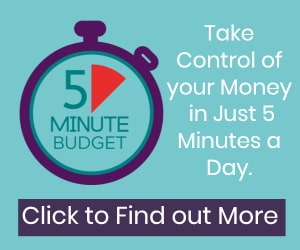There is a way on to curb your spending on unnecesary items. Below I will share with you how to stop spending money on unnecessary things. In doing so, you will see that spending on some items can not only save you a little bit of money each day, but that those small amounts can become MONSTROUSLY HUGE savings amounts over time. Let’s dive in…
There I was sitting at my dining room table in my brand new house, trying to figure out how to make it all work with my money.
Then all of a sudden it happened.
I had an epiphany.
I finally realized something I had been hearing for years. But now it made sense. That epiphany was this:
It’s not what you make, it’s what you keep.
That, coupled with another revelation I’ll get to in a minute, was life changing for me.
For years I had heard this saying, and I thought I got it.
But I never really did anything with it.
Which means I truly didn’t get it.
Side note: Remember: if you do it, you know it, but if you know it and do nothing with it, it’s got no value at all.
Anyway, there I was at my desk.
Then one number stared me in the face.
That number was this:
7,500
That’s how many days I would work over a “normal” career.
I realized that if I went to work every weekday, for 50 weeks out of the year, for the next 30 years. I would work 7500 days.
That’s important because it means this.
I could take any of my daily expenses and multiply it by 7500 and that’s what it would cost me over my working life.
That is the rule of 7500.
This no longer meant a $1 chocolate bar every day was a treat. It meant that it was a $7500 treat that was costing me dearly over my life.
We won’t even get into the whole calories thing (and no emailing me about the ills of chocolate bars, I’ve made my peace)
That’s when I had my second epiphany (can you have two of those?)
It was this.
Small things add up quickly.
That mean that if I wanted to save a lot of money, I just needed to pay attention to my daily habits.
I started with two small changes.
A few coffees at work? I’ll switch and started bringing it from home in a thermos.
Lunch out? I’ll brown bag it thanks.
Those two changes don’t seem like much, but check this out.
Those two things made a BIG difference over 30 years, but because they were so small in the daily living and spending. They never registered.
The Rule of 7500 in Action
Suddenly, buying a couple of coffees at work meant I could pocket $4 a day. Plus another $10 on lunch and a $1 snack around 3 pm.
That was $15 a day I was spending unconsciously.
But it wasn’t just $15.
It was $15 multiplied by 7500.
Try not to faint when you read this next part.
That meant I would spend $112,000 over my career on mindless food I could easily just bring from home.
And it didn’t stop there.
I started to look at everything and it started to make a lot of sense to do all of these small things.
It became very easy to change my daily routine when I could see how it added up.
I didn’t just do this with my daily spending. I started to look at other things this way.
Cell phone plans, routes to work, swapping name label items for no name label food items. All of these changes would add up.
The more of them I made the quicker they would add up for me.
All said and done the small changes I made added up big time, and probably will save me over $250,000 during my career.
And it can be like that for you too. If you want to see how your daily spending goes for the average person you should read this post here about daily spending.
The trick to stop spending money on unnecessary things is to make the item bigger by ballooning that figure
Other Ways for How to Stop Spending Money on Unnecessary Things
- Add them to a list to buy when they are on sale.
- Leave your credit cards at home
- Unsubscribe from any shopping-based emails.
- Sleep on it.
- Create a 72-hour rule, where you have to add things to a list and wait 72 hours to see if you still want them after that.
- Ask yourself, “Do I really need this, or am I just bored.”
- And of course, use the rule of 7500 on any of your daily recurring items
Like this easy to follow rule? Share it so others know about it!



